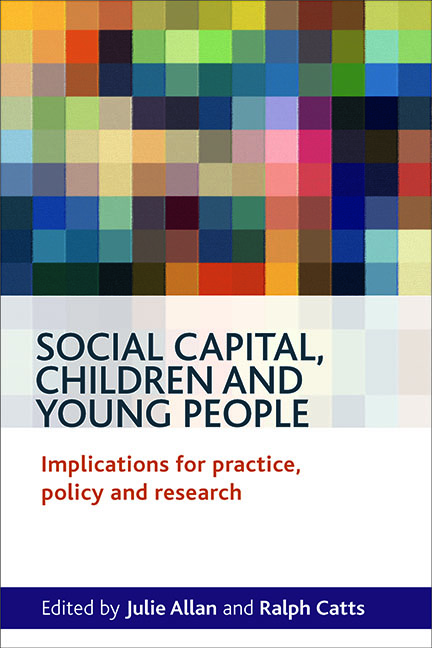ten - Multiple capitals and Scottish independent schools: the (re) production of advantage
Published online by Cambridge University Press: 01 September 2022
Summary
Introduction
This chapter reports on findings from the Scottish Independent Schools Project (SISP), a project developed to complement a range of other case studies supported by the Schools and Social Capital Network of the Applied Educational Research Scheme (AERS), which focused largely on ‘disadvantaged’ groups or communities. SISP, in contrast, sought to explore how social and other capitals work in and through the spatio-temporalities (Sassen, 2001, Gulson and Symes, 2007) of a more privileged setting – that of independent schooling in Scotland. The assumption here was that there is a relationship between the (re) production of advantage and disadvantage and that bonding social capital on a global scale is a feature of contemporary processes of the production of advantage. Succinctly, the research was predicated on the assumption that understanding the production of advantage would also provide insights into the reproduction of disadvantage and the policies and practices required to address it.
Social capital embraces the idea that social networks are valuable assets for individuals and societies, and is one of a number of ‘capitals’ defined by Lin (2001, p. 3) as ‘investment of resources with expected returns in the marketplace’. As outlined below, SISP worked across two theoretical frameworks of social capital: namely that of Putnam (1993, 1995, 2000), Coleman (1988) and Woolcock (1998) on the one hand and that of Bourdieu (1977, 1986, 1991, 2003; and Bourdieu with Wacquant, 1992) on the other, eventually adopting an approach we described as multiple capitals. Bourdieu focuses on multiple capitals and the potential of all forms to be transformed into economic capital linked to the production of advantage, whereas Coleman, Putnam and Woolcock are more sanguine about the ability of social capital to address disadvantage and open up opportunities.
The research sought to understand the differentiated nature of independent schools in Scotland and how different capitals worked in and through them. As such, a preliminary analysis of independent school websites was undertaken. This showed how such schools represent themselves, revealing also the complexity of categorising independent schools in Scotland, given their differentiated nature. Case studies were then carried out in the only three independent schools that agreed to participate, and involved the collection of data by means of interviews, focus groups and questionnaires. It proved impossible to include in the research the highest status, highest profile schools or to explore the capitals held by them.
- Type
- Chapter
- Information
- Social Capital, Children and Young PeopleImplications for Practice, Policy and Research, pp. 181 - 198Publisher: Bristol University PressPrint publication year: 2012



